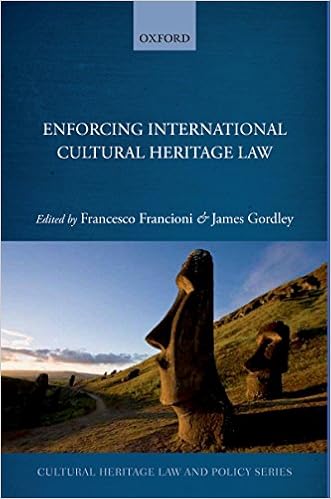
By Randall Williams
Taking a severe view of a commemorated foreign precept, Randall Williams indicates how the concept that of human rights—often taken without any consideration as a strength for solid within the world—corresponds at once with U.S. imperialist goals. bringing up internationalists from W. E. B. Du Bois and Frantz Fanon to, extra lately, M. Jacqui Alexander and China Miéville, Williams insists on a reckoning of human rights with the violence of colonial modernity.
Despite the emphasis on overseas human rights on account that global warfare II, Williams notes that the discourse of human rights has regularly bolstered the worries of the ascendant worldwide strength of the us. He demonstrates how the alignment of human rights with the pursuits of U.S. growth isn't a question of direct keep an eye on or conspiratorial plot however the results of a constructing human rights consensus that has been formed by means of postwar overseas associations and debates, from the United international locations to overseas legislation. Williams probes high-profile instances concerning Amnesty overseas, Nelson Mandela, the foreign Lesbian and homosexual Human Rights fee, Abu Ghraib, and Guantánamo, in addition to providing readings of works equivalent to Hotel Rwanda, Caché, and Death and the Maiden that experience placed forth radical evaluations of political violence.
The so much forceful contradictions of overseas human rights discourse, he argues, come into aid inside of anticolonial reviews of racial violence. To this finish, The Divided World examines how a human rights-based overseas coverage is finally mobilized to regulate violence—by proscribing the entry of its sufferers to justice.
Read or Download The Divided World: Human Rights and Its Violence PDF
Best human rights books
Download e-book for iPad: Political Violence and the International Community: by Kirsti Samuels
Are civil conflicts and coups d'etat issues of overseas trouble, or questions of nationwide curiosity basically? How can the more and more universal perform of condemnation and intervention via the United countries and person States into events of utmost political violence be understood? Will civil clash someday be thought of unlawful below overseas legislations, within the similar method as overseas warfare?
Download PDF by Simon Walker: The Future of Human Rights Impact Assessments of Trade
In an age of globalization, loose alternate could be synonymous with prosperity for all. but too frequently, small farmers, indigenous peoples, individuals with HIV, and others are disregarded of the image. This booklet proposes a brand new strategy to make unfastened alternate paintings for everyone. It examines how exchange pacts can profit humans, yet may also threaten their easy human rights to entry nutrients, medicinal drugs, and schooling, or to guard their cultural background.
The assumption of cultural history as an 'international public reliable' might be traced again to the Preamble of the 1954 Hague conference for the security of Cultural estate within the occasion of Armed clash, in accordance with which "damage to cultural estate belonging to any humans whatever potential harm to the cultural historical past of all mankind".
Download PDF by A. Naomi Paik: Rightlessness : testimony and redress in U.S. prison camps
During this daring ebook, A. Naomi Paik grapples with the background of U. S. criminal camps that experience restrained humans outdoors the limits of felony and civil rights. faraway from the social and political groups that may warrantly primary criminal protections, those detainees are successfully rightless, stripped of the fitting even to have rights.
- The Right to Leave and Return and Chinese Migration Law
- Gender, law and justice in a global market
- The United Nations: A Very Short Introduction (2nd Edition)
- Dignity: Its History and Meaning
- Human Rights in the Field of Comparative Education
- Normative Jurisprudence: An Introduction
Extra info for The Divided World: Human Rights and Its Violence
Example text
But . . violence is intimately connected to the project of modernity, no matter where it exists. It begs the question about whether we are to apprehend violence as an indispensable dimension of democracy or dispense with the category of democracy altogether. — M. Jacqui Alexander, “Transnationalism, Sexuality, and the State” Becoming Global The year 1978 saw the establishment of the first “international” gay organization at a conference of the Campaign for Homosexual Equality in Coventry, England.
But in 1964, all of this changed when Mandela delivered a public statement before the court explaining why he and his fellow resistance fighters had decided to use violence to overthrow the racist South African state. ” Mandela’s speech on April 20, 1964, opened the case for the defense. He did not plead his, or his co-conspirators, innocence: “some of the things so far told to the Court are true and some are untrue. ” With the “admission of guilt” clearly made, Mandela’s speech before the court became a historical treatise on the necessity for armed struggle in the contemporary context of the Republic of South Africa.
48 By the early 1970s, however, the effects of the South African state’s counterinsurgency assault had taken its toll on the ANC, with most of its leadership either dead, in prison, or in exile. 49 In a demonstration of the emergent organizational capacities of the new movements, thousands of schoolchildren in the Soweto township left their classrooms on June 16, 1976, in protest against the mandated use of Afrikaans as the language of instruction in black schools. By the end of that day some twenty-nine children were dead.



